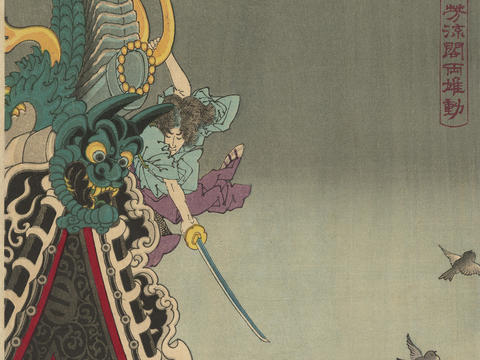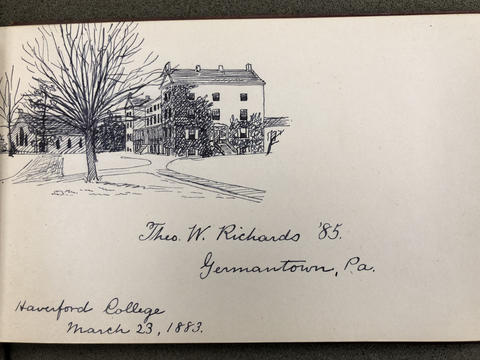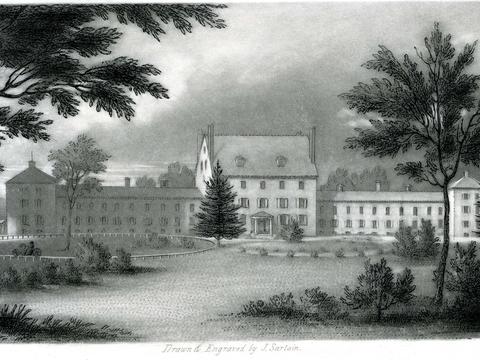An Exhibition featuring the Arnold Satterthwait, Class of 1966 Collection
Curated by Stephanie Wang, BMC '24
Rebecca and Rick White Gallery, Lutnick Library
February 22 to July 5, 2024
This exhibit explores the artistic tradition known as “images of the floating world” (ukiyo-e 浮世絵), the visual and material manifestation of a unique culture that emerged and flourished in Edo period Japan (1605-1868).


